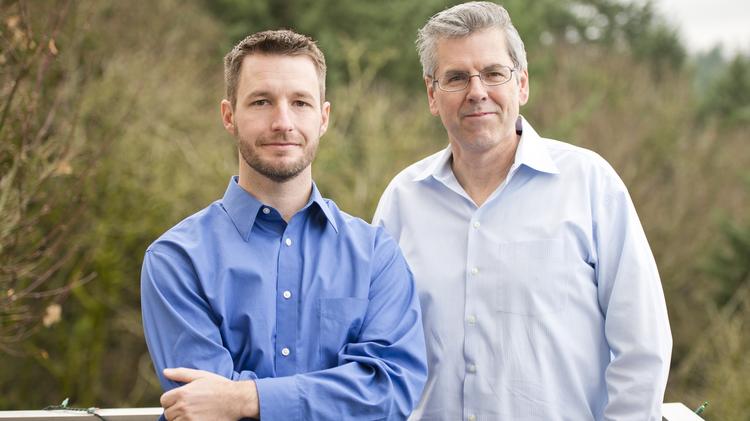Catching up with OHSU scientists about their hyped sleep deprivation-Alzheimer’s study
Jan 12, 2016, 12:30pm PST | Elizabeth Hayes
I caught up with Jeffrey Iliff, an assistant professor at OHSU, and Bill Rooney, who directs OHSU’s Advanced Imaging Research Center, to ask about their study and the recent flurry of publicity.
Briefly, the pair received a $1.4 million grant last July from the Paul G. Allen Family Foundation to help them further their research. They plan to use novel methods, combined with imaging, to measure the activity of the glymphatic system for the first time in human patients, shedding light on the basic biology underlying the progression of Alzheimer’s.
That system helps clear plaques from the brain during deep sleep. Amyloid plaques associated with Alzheimer’s have been shown to develop more quickly in the brains of sleep-deprived mice. The following is conversation has been edited down for clarity.
You’ve been studying the connection between sleep and Alzheimer’s for awhile. What do you make of the recent media interest?
Iliff: We didn’t necessarily publish anything new. The subject is one that the public is very, very interested in. Anything talking about sleep, which every one cares about, and Alzheimer’s, which everyone cares about, raises attention. Put a headline about Alzheimer’s and lack of sleep on a story about Nascar and people would read it.
Are you concerned about the headlines overstating the connection, since there’s still research to be done?
Iliff: I thought the NPR piece was played very straight and the commentary and the content of the actual piece was right on. It talked about animal work that had been done and an association between sleep disruption and Alzheimer’s pathology. It talked about the difficulty involved in trying to make that connection in humans. What ends up happening is when you move in concentric circles in the media from that thing, it gets further from the truth.
How so?
Iliff: There isn’t any causal association between sleep disruption and Alzheimer’s. A lot of associative work has been done, but that doesn’t really give us an answer about whether lack of sleep causes the pathology or the other way around or if the same factor is causing both independently. That’s what we have to do in human subjects — to figure out what direction that goes.
How close are you to starting the human study?
Rooney: We’re in the process of preparing to start the human study, and a lot of pieces have to fall into place. We have to get all the regulatory approvals, which is time consuming, and we are refining some of the animal measurements we’re collecting to better design the human study to make it as powerful as it can be. We expect to start the human study in the next three to five months.
How big will it be?
Rooney: For the initial human work in the next three to 10 months, we’re looking to enroll 25 human subjects. The first cohort study will look at young, healthy adults that have documented good sleep.
Is the ultimate goal to come up with a drug therapy?
Iliff: One of the reasons the Allen Foundation chose to fund it is the two-headed promise this project might have. One is perhaps drug or biology focused. If this process is part of what’s going on in the brains of people developing Alzheimer’s, it suggests a whole new set of targets to go after in preventing or treating Alzheimer’s. If the association of sleep holds up, we’ll be focusing hard on sleep hygiene in the early stage of disease progression.





